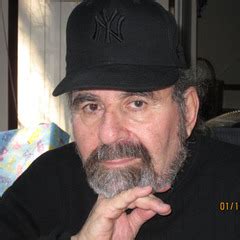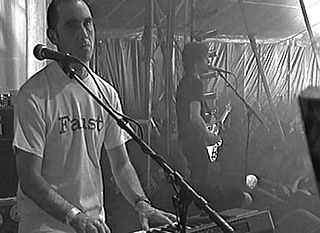A Quote by Arnold Adoff
A fine poem combines the elements of meaning, music, and a form like a living frame that holds it together.
Related Quotes
I want each poem to be ambiguous enough that its meaning can shift, depending on the reader's own frame of reference, and depending on the reader's mood. That's why negative capability matters; if the poet stops short of fully controlling each poem's meaning, the reader can make the poem his or her own.
A poem compresses much in a small space and adds music, thus heightening its meaning. The city is like poetry: it compresses all life, all races and breeds, into a small island and adds music and the accompaniment of internal engines. The island of Manhattan is without any doubt the greatest human concentrate on earth, the poem whose magic is comprehensible to millions of permanent residents but whose full meaning will always remain elusive.
When a poet writes a poem, meaning arises - because the poet is not alone; he has created something. When a dancer dances, meaning arises. When a mother gives birth to a child, meaning arises. Left alone, cut off from everything else, isolated like an island, you are meaningless. Joined together you are meaningful. The bigger the whole, the bigger is the meaning.
The subject of the poem usually dictates the rhythm or the rhyme and its form. Sometimes, when you finish the poem and you think the poem is finished, the poem says, "You're not finished with me yet," and you have to go back and revise, and you may have another poem altogether. It has its own life to live.
When a person listens to a good song, and they can look out at the world and their lives and see the dark and the light, the negative and the positive, all the different elements, all come together in one holistic poem, that is a very healing and very reductive thing, and that's what my music is about.
It's the way I make music, I will take two ideas and smash them together and if they sit well together for me then that's fine, and it's the same with the lyrics - if I see a couple of lines and I like the way they look on the page then I'll use them. I find they take on a meaning of their own, it's very difficult to explain how I actually go about all that.
Theology is-- or should be-- a species of poetry,which read quickly or encountered in a hubbub of noise makes no sense. You have to open yourself to a poem with a quiet, receptive mind, in the same way you might listen to a difficult piece of music... If you seize upon a poem and try to extort its meaning before you are ready, it remains opaque. If you bring your own personal agenda to bear upon it, the poem will close upon itself like a clam, because you have denied its unique and separate identity, its inviolate holiness.






































